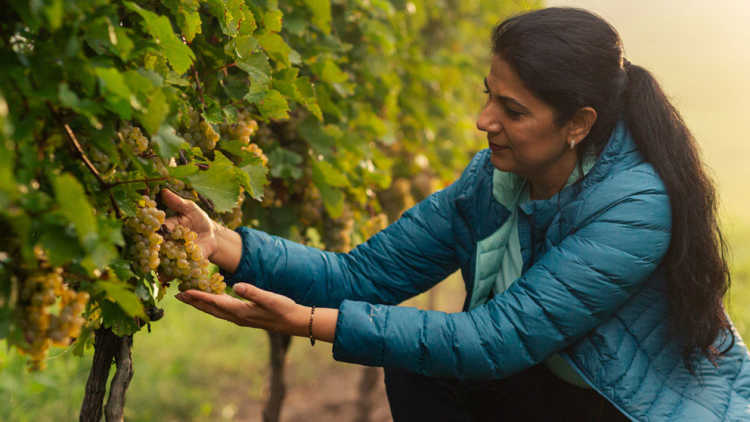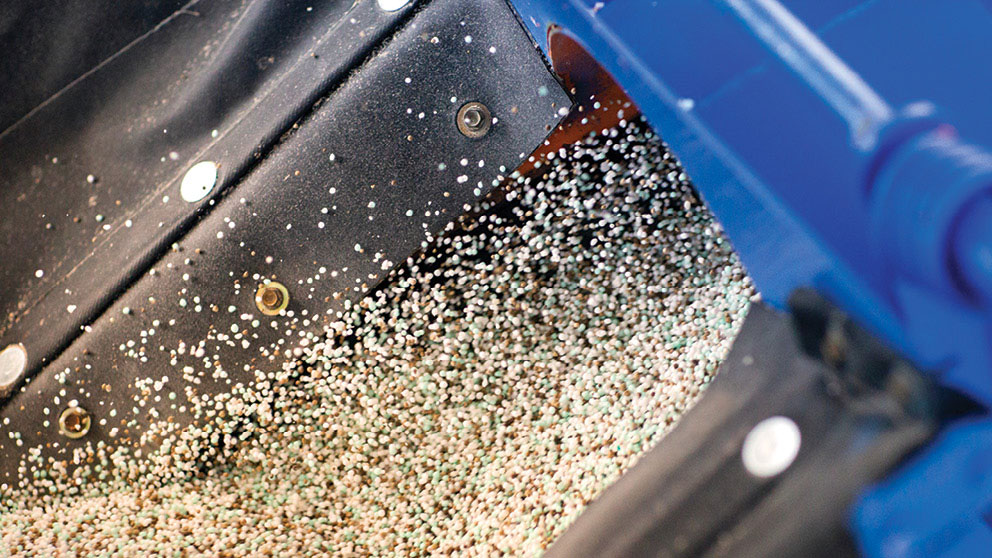From ground to glass – cheers to sustainability

Canada is home to four wine regions, with vineyards in Ontario, BC, Quebec and Nova Scotia. These wine regions are made possible by the reliance on precious natural resources, including solar energy, climate, soils and water.
Sustainable agriculture is a growing phenomenon focusing on ensuring enough resources for future needs by minimizing environmental impact through current practices. Sustainable Winegrowing BC states, “Sustainability happens when the use of resources, the direction of investments, the aims of technological advances, and the drivers of institutional change are all in harmony and enhance both current and future potential to meet human needs and expectations.”
Sustainability in the vineyard
For a vineyard, sustainable practices are not limited to the grape but include everything and everyone involved in the wine-growing process. Sustainability in agriculture is often described as a journey, not a destination, as it demands continuous commitment and growth. From soil to sun, the following are just a few examples of sustainable winegrowing efforts:
Healthy soils: Avoids heavy machinery, conduct regular soil testing, incorporate organic matter, and plant cover crops between vines rows which will control growth, add nutrients and attract beneficial insects.
Water use efficiency and protection: Reduces water usage by drip irrigation, monitoring water usage, and regularly testing water quality. Protect all water sources on or adjacent to the vineyard by avoiding contamination or impact on water sources. Growers must use best practices to minimize soil erosion and control runoff water.
Renewable energy: Use of solar panels, wind or hydroelectricity throughout vineyard operation.
Pest management: Uses a pest management plan that identifies and monitors pest activity in the vineyard. Use of organic, natural or low toxicity pesticides limited to only impacted areas and develop barriers to avoid spray drift and protect water bodies and ecosystems.
Enhance wildlife and biodiversity: Encourages habitation and vegetation for wildlife, including bees, butterflies and other insects that can be utilized to help naturally control pests.
Social responsibility: Actively minimize negative impacts on neighbours and local communities, offer fair wages, additional training and a safe work environment for employees. Commit to being a resource of knowledge for sustainable practices.
Benefits to sustainability
The three pillars of sustainability are planet, people and profit. We know long-term sustainable practices can benefit the environment and our population, but how can sustainable farming help improve profits? The following outlines some long-term positive impacts of sustainable winegrowing in vineyards:
Cost savings through reduced water, fertilizers, pesticides, energy and waste usage
Produce higher quality products
Improve efficiencies and vineyard knowledge
Ensure long-term land viability
Protect and conserve natural resources
Enhance relationships with neighbours, communities and consumers
Sustainability certifications
While still a relatively new concept, sustainability certification programs are growing in popularity worldwide. The California Sustainable Wine Growing Alliance formed one of the world’s first sustainable certifications in 2010, and today, approximately 55% of California vineyards are Certified Sustainable, with 82% of the wine made in a sustainable winery. France, another world leader in the wine industry, is also making headlines for sustainability, with reportedly 75% of Bordeaux vineyards being certified, which has increased from just 35% in 2014.
Canada has been steadily growing in the wine industry, with just over 33,000 acres of vineyards. BC and Ontario represent Canada’s largest vineyard-growing regions. To support sustainable practices, two certification programs are available to growers in Canada who are committed to long-term sustainable growing practices.
In 2007, Sustainable Winegrowing Ontario (SWO) was created, and an accredited certification program was established in 2017. The certification applies to vineyards and wineries and was built around three core pillars of sustainability: Environment, Economy and Community. To obtain certification, participating vineyards commit to sustainable practices and are audited annually by third parties on water and waste management, social responsibility, commitment to workplace diversity and energy efficiencies. SWO’s vision is to have all of Ontario’s wineries, and vineyards obtain Sustainable Winegrowing Ontario Certified designation by 2030.
In BC, Sustainable Winegrowing British Columbia (SWBC) is a program that volunteers created in 2011, and a certification program was launched in October 2020. The SWBC provides valuable resources and training to growers who want to establish sustainable practices and offers certification to those who implement meaningful grape growing standards. The SWBC program has standards applicable to vineyards and wineries and requires regular reporting from growers and third-party certification audits.
Both certification programs have gained support and interest from local growers and the community. It’s no secret that consumers are also increasingly more concerned with the quality of products and the impact producers have on the environment.
Again, sustainability is often referred to as a journey – not a destination. FCC is committed to supporting this journey for our customers and is currently developing programs to promote sustainable agriculture practices.
For more information, please contact our FCC sustainability team at sustainabilityprograms@fcc-fac.ca.
Additional resources
Article by: Alana Hinton, Senior Appraiser

The 2023 crop input market will be characterized by high prices.
